James K. Feibleman was a philosopher, poet, and businessman. A prolific writer, Feibleman was the author of over 39 books on subjects ranging from philosophy and psychology to education and the arts. More than 175 of his articles appeared in textbooks as well as professional and popular magazines. He also wrote short stories and novels, and his first book, Death of God in Mexico, was published in 1931.
James Feibleman was born in New Orleans, Louisiana, in 1904 and began his career as a poet at the age of 15, writing primarily for magazines. In 1930 he became the vice-president and general manager of the James K. Feibleman Realty Company, Inc., and in 1954 he was made a partner in the Leopold Investment Company. But business never interested him. He went on to write books and articles that shall be studied for years after. He passed away in 1987.
1 That some good can be derived from every event is a better proposition than that everything happens for the best, which it assuredly does not. -James Kern Feibleman
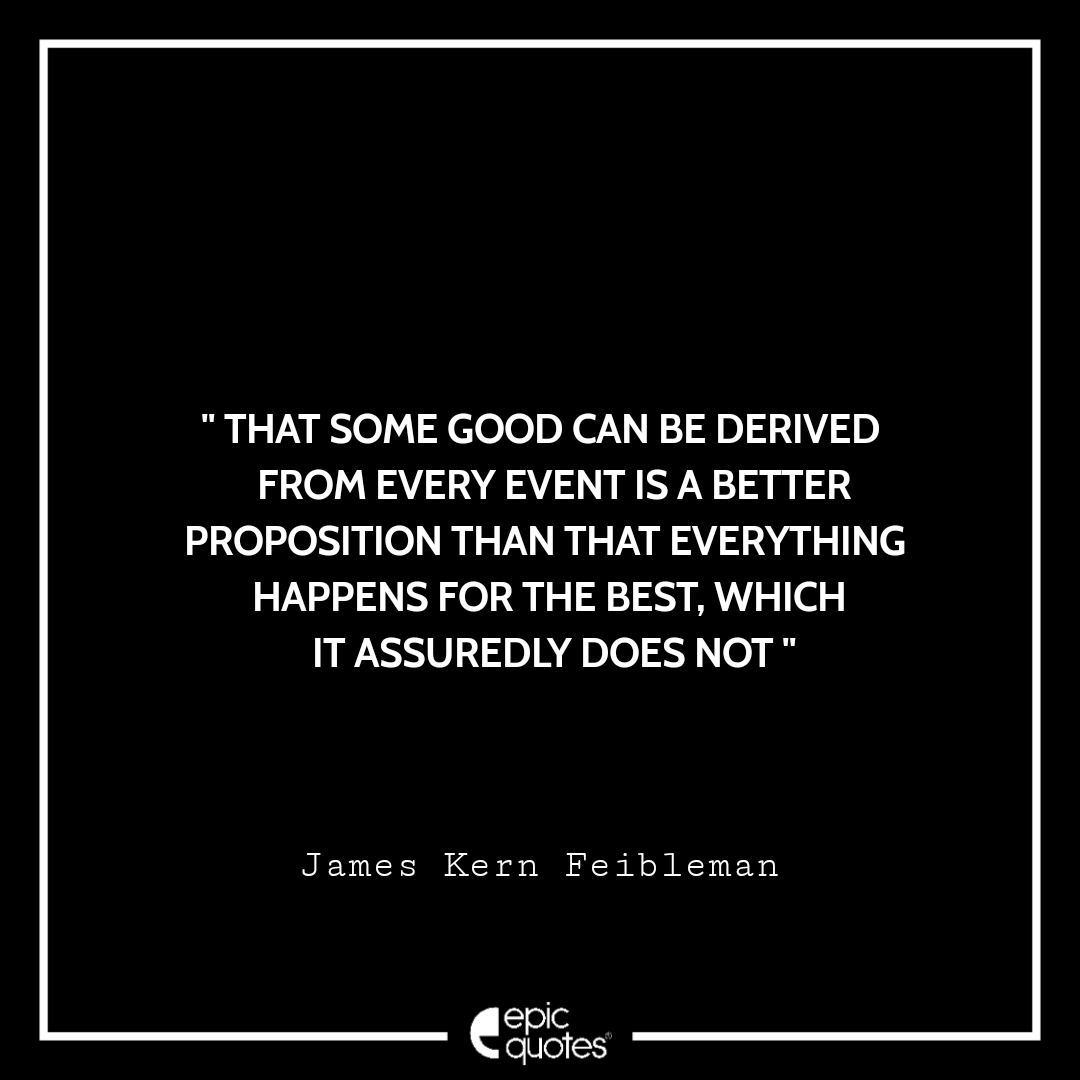
Not everything that happens does so for the best and not every end is a happy one. Some reach a tragic climax with no cathartic resolution. The idea that everything happens for the best is a fallacy. But what is true is that good can be derived from even the worst of situations.
2 Comedy is an intellectual affair, and deals chiefly with logic. -James Kern Feibleman
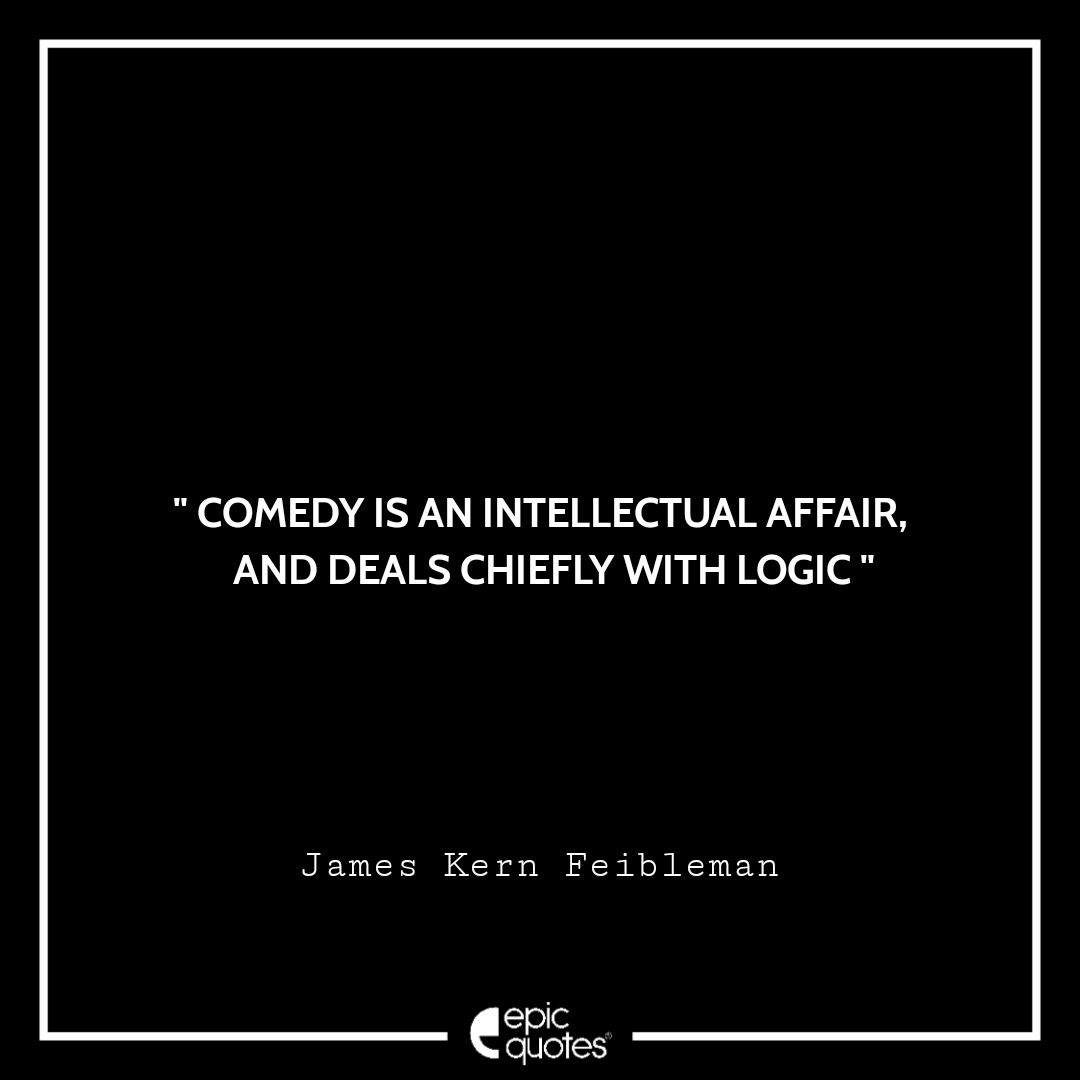
Comedy needs logic and reason. To have a sense of humor, one first needs to be clever enough. Logic supplements humor.
3 It is better to be famous than notorious, but better to be notorious than obscure. -James Kern Feibleman

To be known for goodness is so much better than to be known for something bad. But to be a nobody and have lived a life of obscurity is worse than either of them.
4 A myth is a religion in which no one any longer believes. -James Kern Feibleman
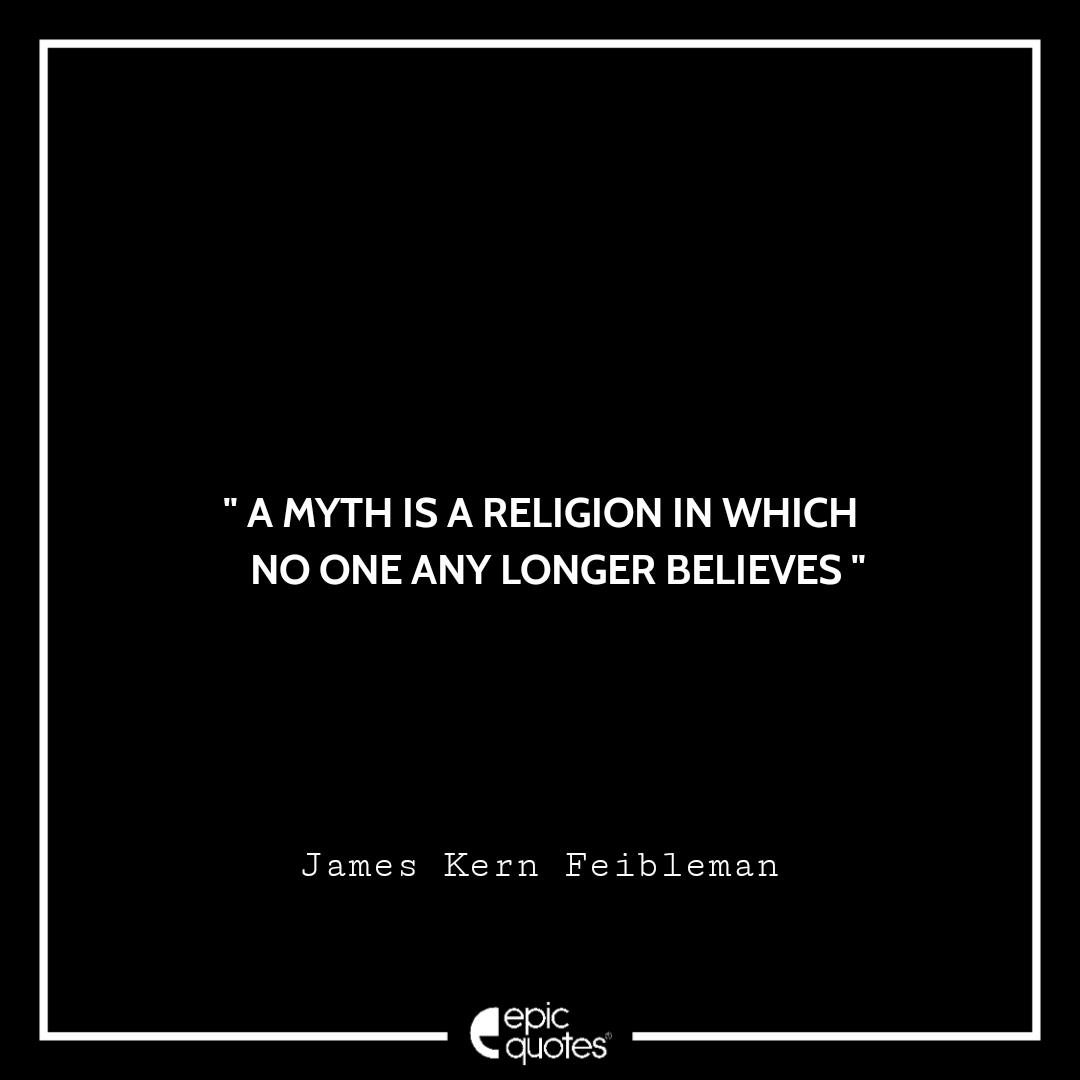
Religions are based on stories and unfactual narratives. And myths are just those stories which have lost credibility and faith.
5 Tragedy is an emotional affair, and deals chiefly with value. -James Kern Feibleman
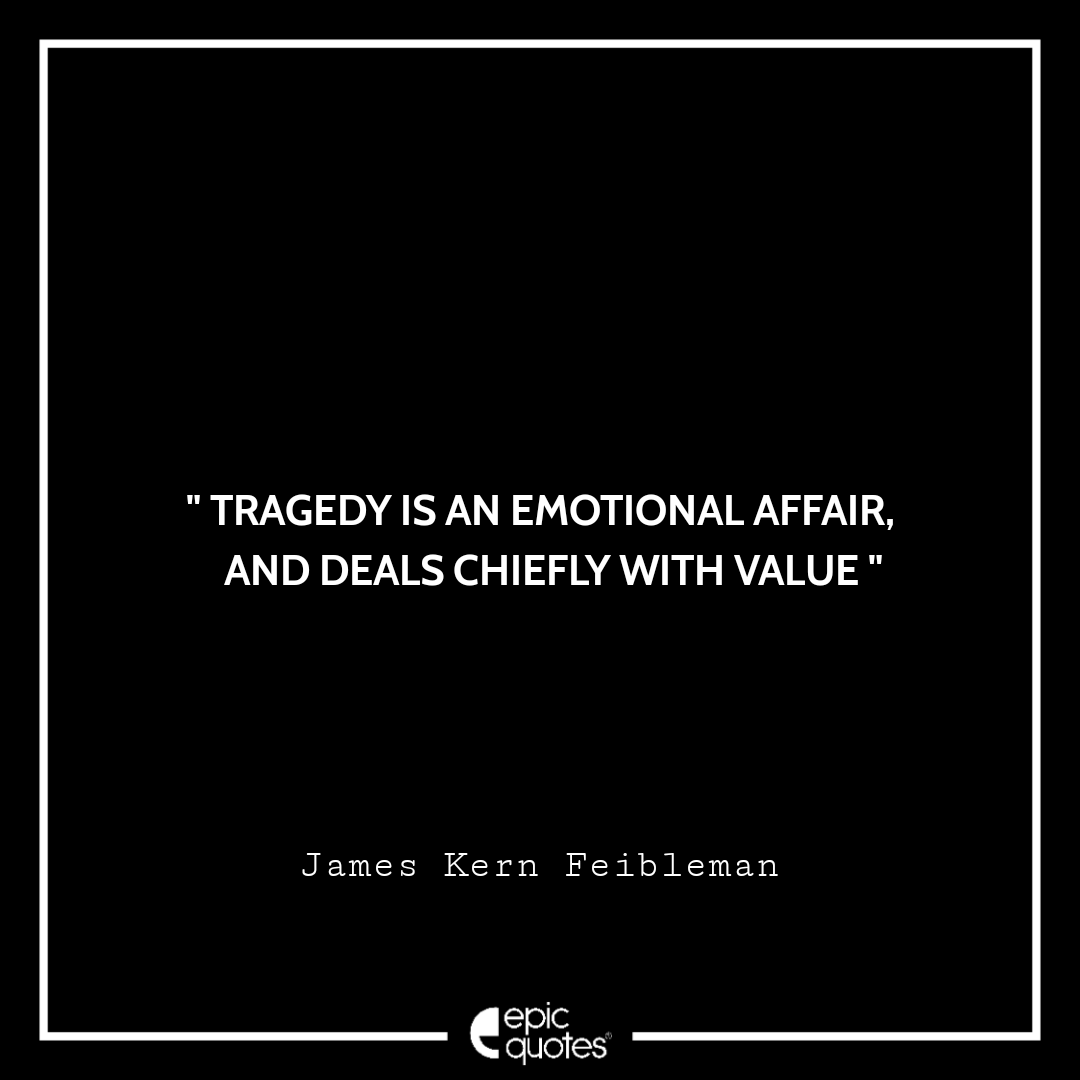
Tragedy clicks into our emotions making us feel deeply about something. It deals with the value of certain things and works by taking away that and hence bringing in a feeling of loss and devastation.
6 Horace Walpole once said that “life is a comedy to the man who thinks and a tragedy to the man who feels.” -James Kern Feibleman
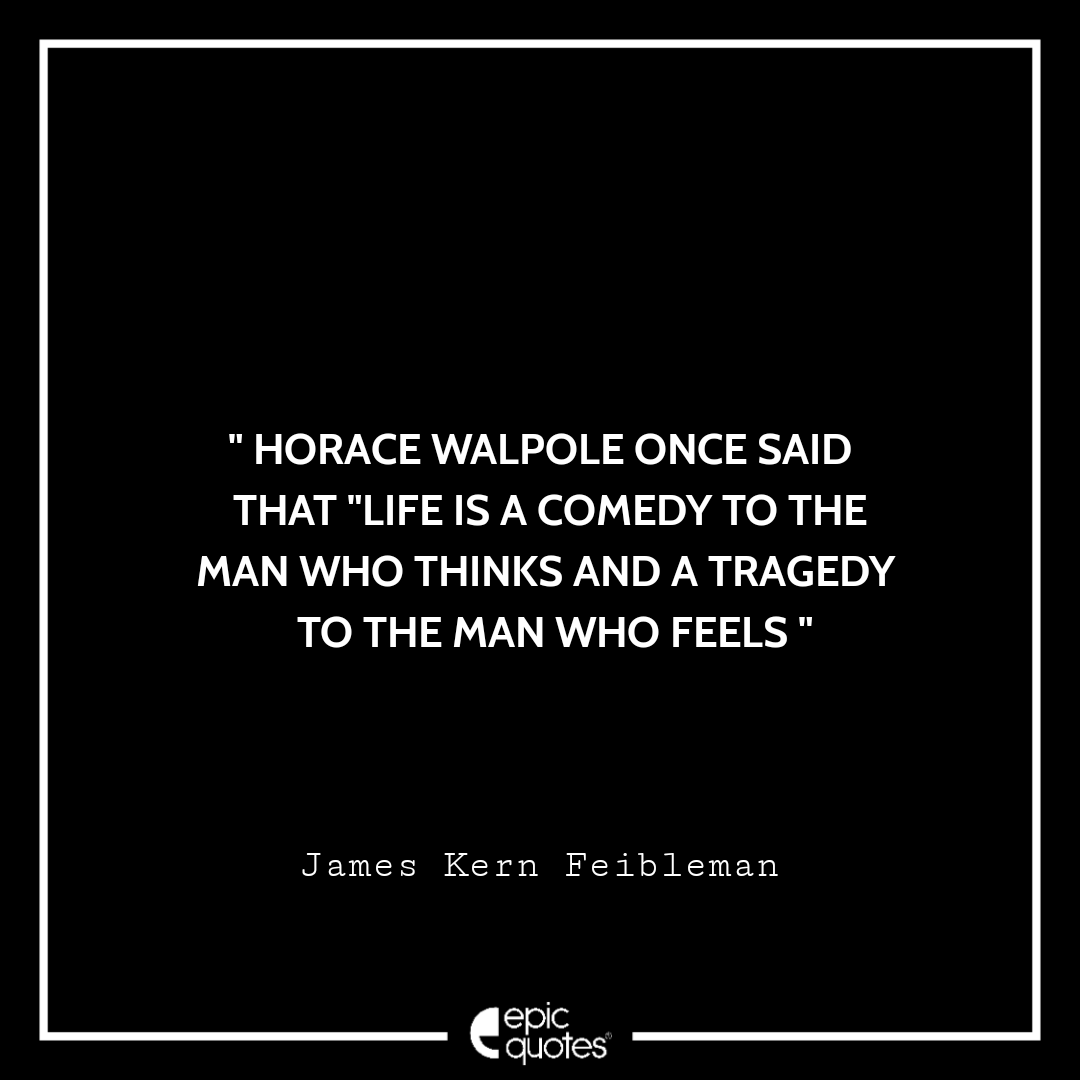
If you examine it closely, life is nothing short of a well written comedy. To those who think and observe, life is amusing. But for the ones who have a much shorter grip over their emotions, life is a tragedy.
7 Comedy is negative, it is a criticism of limitations and an unwillingness to accept them. -James Kern Feibleman
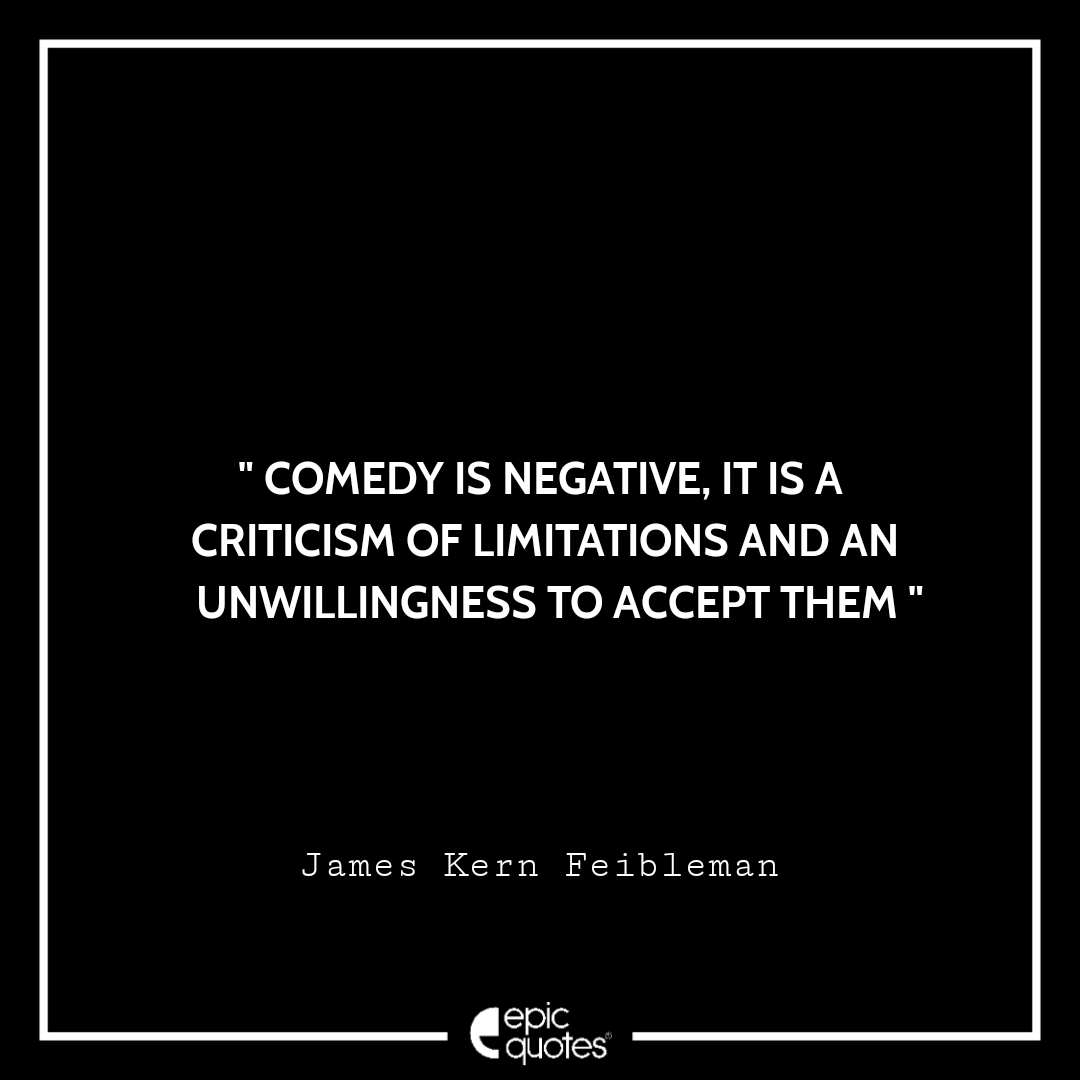
Comedy deals with the limitations and boundaries of preconceived ideas and ubiquitous norms. It looks at the negative aspects of things and criticizes them.
8 Tragedy is positive, it is an uncritical acceptance of the positive content of that which is delimited. -James Kern Fiebleman
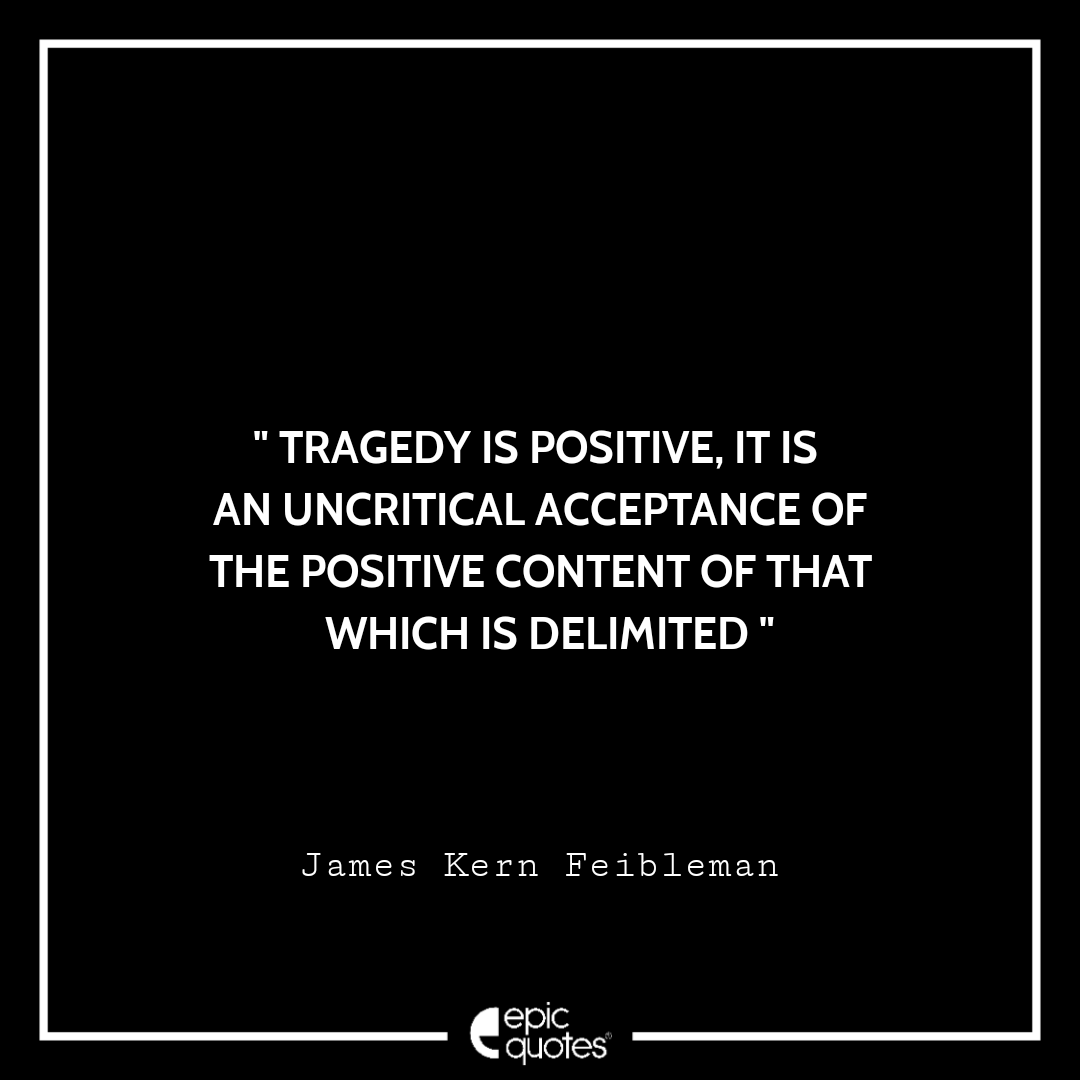
Tragedy is a positive affair as it revolves around accepting that which is rather depressing and heartbreaking. Catharsis resides at the core of any tragedy. It helps you perceive the good that can be derived from devastating affairs.
9 Since comedy deals with the limitations of actual situations and tragedy with their positive content, comedy must ridicule and tragedy must endorse. -James Kern Feibleman
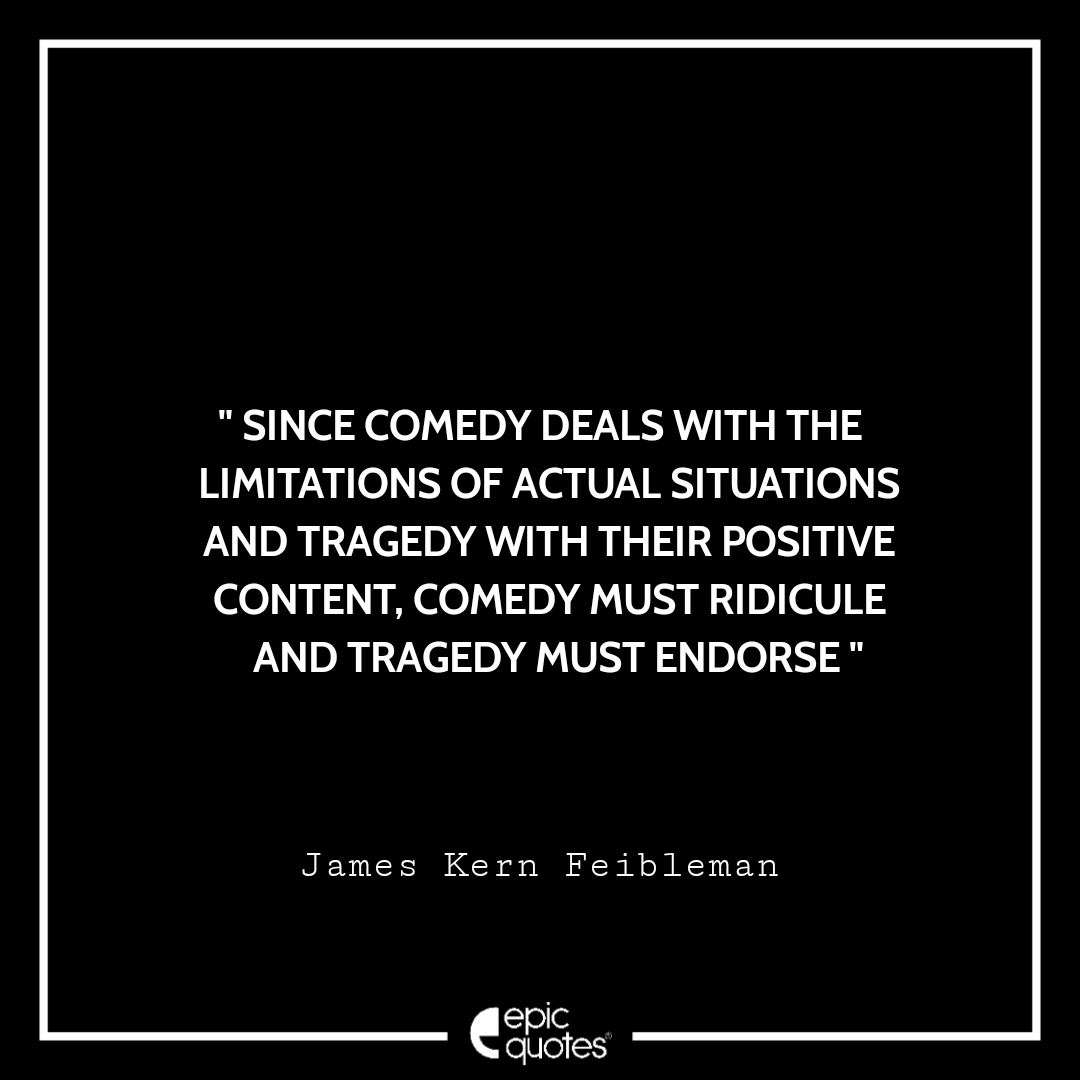
Comedy is a criticism of the limitations of situations while tragedy brings forth the positive content hidden within a seemingly dire situation. And hence, comedy must ridicule while tragedy must endorse.
9 Philosophical Quotes By James Feibleman!
1. That some good can be derived from every event is a better proposition than that everything happens for the best, which it assuredly does not. -James Kern Feibleman
2. Comedy is an intellectual affair, and deals chiefly with logic. -James Kern Feibleman
3. It is better to be famous than notorious, but better to be notorious than obscure. -James Kern Feibleman
4. A myth is a religion in which no one any longer believes. -James Kern Feibleman
5. Tragedy is an emotional affair, and deals chiefly with value. -James Kern Feibleman
6. Horace Walpole once said that “life is a comedy to the man who thinks and a tragedy to the man who feels.” -James Kern Feibleman
7. Comedy is negative, it is a criticism of limitations and an unwillingness to accept them. -James Kern Feibleman
8. Tragedy is positive, it is an uncritical acceptance of the positive content of that which is delimited. -James Kern Fiebleman
9. Since comedy deals with the limitations of actual situations and tragedy with their positive content, comedy must ridicule and tragedy must endorse. -James Kern Feibleman

